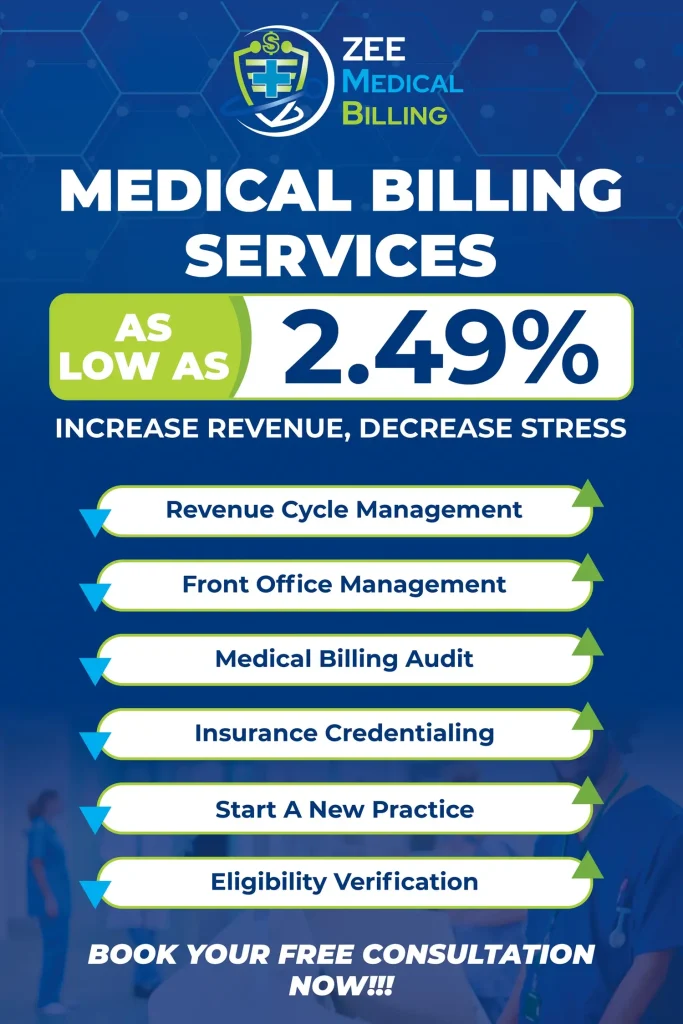Navigating the world of behavioral health billing feels like trying to solve a Rubik’s cube blindfolded, doesn’t it? Between complex insurance requirements, ever-changing regulations, and documentation demands that seem to multiply overnight, billing for behavioral health services presents unique challenges that can make or break your practice’s financial stability. Let’s cut through the confusion and explore the best practices that keep revenue flowing—and the pitfalls that can drain your practice dry.
Understanding Behavioral Health Billing Services
What Makes Behavioral Health Billing Unique?
Behavioral health billing services aren’t just regular medical billing with a different coat of paint. They’re fundamentally different creatures altogether. Unlike a straightforward office visit for a broken arm, behavioral health services involve ongoing treatment relationships, session-based billing, and insurance companies that scrutinize every claim with microscopic attention.
The complexity starts with the services themselves. Behavioral health encompasses psychiatry, psychology, counseling, substance abuse treatment, and crisis intervention—each with distinct billing requirements. Add in the stigma that still surrounds mental health, and you’ve got insurance companies applying different standards than they would for physical health conditions.
ZEE Medical Billing specializes in these nuances, understanding that behavioral health billing requires specific expertise that general medical billing simply doesn’t provide.
The Scope of Behavioral Health Services
Behavioral health isn’t a monolith. It includes individual therapy, group counseling, medication management, psychological testing, crisis intervention, substance abuse treatment, and family therapy. Each service type has specific CPT codes, documentation requirements, and reimbursement rates.
Some services require pre-authorization, while others don’t. Some payers limit the number of sessions per year, while others evaluate medical necessity on a case-by-case basis. This variability makes standardized billing approaches ineffective—you need strategies tailored to the behavioral health landscape.
The intersection with mental health billing services creates additional complexity, as many practices offer both psychiatric and psychological services under one roof.
Best Practices for Behavioral Health Billing
Implement Thorough Eligibility Verification
Here’s a scenario that plays out in practices daily: A patient completes their first session, you submit the claim, and it bounces back because their insurance doesn’t cover outpatient mental health services. Now you’re stuck explaining to a vulnerable patient why they owe hundreds of dollars they didn’t anticipate.
This nightmare is completely preventable through comprehensive eligibility verification. Before that first appointment, verify not just whether the patient has active coverage, but specifically what behavioral health benefits their plan includes.
Check for:
- Covered services and excluded treatments
- Session limits and frequency restrictions
- Copayment and deductible amounts
- In-network versus out-of-network benefits
- Pre-authorization requirements
- Telehealth coverage policies
Professional upfront assistance services handle this verification systematically, catching issues before they become billing disasters.
Master Documentation Standards
In behavioral health billing, documentation isn’t just about getting paid—it’s about proving medical necessity. Insurance companies don’t accept “patient felt better” as justification for continued treatment. They want specific, measurable progress toward identified treatment goals.
Progress Notes and Treatment Plans
Every session note should tell a story that justifies the service. Include:
- Presenting problems with specific symptoms
- Interventions used during the session
- Patient’s response to treatment
- Progress toward treatment plan goals
- Clinical justification for continued care
Your treatment plans should outline measurable objectives with timelines. Vague goals like “improve depression” won’t cut it. Instead, document specific targets: “Patient will demonstrate three coping strategies for managing anxiety symptoms within six weeks.”
Think of your documentation as evidence in court. If an auditor reviewed your records, would they clearly understand why each service was medically necessary? If not, your documentation needs strengthening.
Stay Current with Coding Requirements
Behavioral health coding evolves constantly. CPT codes change, new modifiers appear, and payer policies shift. Using outdated codes is like trying to unlock your office with last year’s key—it simply won’t work.
Common behavioral health codes include:
- 90832, 90834, 90837 (psychotherapy sessions of varying lengths)
- 90791 (psychiatric diagnostic evaluation)
- 90847 (family therapy with patient present)
- 96130-96139 (psychological testing)
But knowing the codes isn’t enough. You need to understand which modifiers apply, how to bill for concurrent services, and when add-on codes are appropriate. For instance, can you bill both a medication management code and a psychotherapy code for the same session? Sometimes yes, sometimes no—it depends on the payer and specific circumstances.
Professional coders who specialize in behavioral health stay current with these nuances, ensuring your practice captures appropriate reimbursement without crossing compliance lines.
Leverage Revenue Cycle Management
Billing doesn’t end when you submit a claim. That’s actually just the beginning. Comprehensive revenue cycle management follows each claim from submission through payment, identifying bottlenecks and addressing issues promptly.
Effective revenue cycle management includes:
- Clean claim submission with complete information
- Prompt follow-up on unpaid claims
- Appeals process for denied claims
- Payment posting and reconciliation
- Patient billing for balance amounts
- Accounts receivable aging analysis
When managed properly, your revenue cycle becomes a well-oiled machine, converting services into cash with minimal friction. When neglected, it becomes a leaky bucket where revenue constantly slips away.
Conduct Regular Medical Billing Audits
Would you drive your car for years without ever checking the oil? Of course not. Yet many practices operate for years without conducting thorough medical billing audits to identify problems lurking beneath the surface.
Regular audits examine:
- Coding accuracy and appropriateness
- Documentation supporting billed services
- Charge capture completeness
- Claims submission timeliness
- Denial patterns and root causes
- Compliance with payer policies
External audits provide objective assessments that internal reviews often miss. They identify both revenue opportunities (services you’re under-billing) and compliance risks (practices that could trigger payer audits or penalties).
Common Pitfalls in Behavioral Health Billing
Inadequate Insurance Verification
We’ve all heard the phrase “trust but verify.” In behavioral health billing, skip the trust part and go straight to verification. Patients often don’t understand their own insurance coverage, and benefits representatives sometimes provide incorrect information.
The pitfall deepens when practices verify coverage once at intake and never again. Insurance changes, benefits reset annually, and patients switch plans. Regular reverification catches these changes before they cause claim denials.
Without proper eligibility verification, practices face mounting patient balances, collections challenges, and the uncomfortable position of billing vulnerable patients for unexpected charges.
Insufficient Documentation
Here’s a hard truth: if it isn’t documented, it didn’t happen. Not in the eyes of insurance companies, auditors, or legal proceedings. Many behavioral health providers excel at treatment but struggle with documentation—it’s time-consuming, feels bureaucratic, and takes energy away from patient care.
Yet inadequate documentation is the number one reason for claim denials in behavioral health. Payers look for specific elements:
- Medical necessity clearly established
- Treatment goals specifically defined
- Progress objectively measured
- Clinical reasoning explicitly stated
“Patient seemed better” doesn’t meet these standards. “Patient reported 50% reduction in panic attacks, from 8 to 4 per week, and independently used breathing techniques taught in previous session” does.
The pitfall isn’t just about denials—it’s about compliance risk. Documentation deficiencies discovered in audits can result in recoupment of payments already received, sometimes going back years.
Coding Errors and Omissions
Behavioral health coding mistakes come in several flavors, all of them costly:
Upcoding: Billing for a higher-level service than provided. This is fraud, even when unintentional, and can trigger investigations and penalties.
Downcoding: Billing for a lower-level service than actually provided. This leaves money on the table and shortchanges your practice.
Unbundling: Separately billing services that should be reported together. Payers have edits that automatically reject these claims.
Using outdated codes: CPT codes retire regularly. Using obsolete codes guarantees claim rejection.
Missing modifiers: Some services require specific modifiers to indicate circumstances affecting payment. Omitting them results in denials or incorrect payment amounts.
Each error type damages your practice differently—some create compliance exposure, others leave revenue uncollected. Both hurt your bottom line.
Missing Pre-Authorization Requirements
Nothing frustrates providers more than delivering excellent care only to have the claim denied because pre-authorization wasn’t obtained. Behavioral health services frequently require pre-authorization, especially for:
- Intensive outpatient programs
- Partial hospitalization
- Residential treatment
- Psychological testing
- Extended therapy beyond certain session limits
Understanding Payer-Specific Rules
Here’s where it gets truly complicated: every insurance company has different pre-authorization requirements. United Healthcare’s rules differ from Aetna’s, which differ from Medicare’s, which differ from state Medicaid programs.
Some payers require authorization before the first session. Others allow initial evaluation without authorization but require approval before ongoing treatment. Some review every 10 sessions; others authorize 20 or more sessions at once.
Tracking these payer-specific requirements manually is nearly impossible. Professional front office management services maintain current payer requirements and ensure authorizations are obtained before services are rendered.
Technology Solutions for Behavioral Health Billing
Front Office Management Systems
Technology doesn’t replace human expertise in behavioral health billing, but it certainly amplifies efficiency. Integrated front office management services connect scheduling, patient registration, insurance verification, and billing in one seamless system.
When information flows automatically from registration to billing, errors decrease dramatically. No more transcription mistakes when someone manually enters insurance information. No more missed authorizations because requirements weren’t flagged at scheduling.
Modern systems alert staff when authorizations are approaching expiration, flag when patients have unmet deductibles, and identify when documentation deadlines are approaching.
Automated Eligibility Checking
Real-time eligibility verification systems query insurance databases instantaneously, providing current benefit information without phone calls or lengthy hold times.
These systems check eligibility not just once but before every appointment, catching coverage changes immediately. They identify copayment amounts, deductible status, and benefit limitations automatically, ensuring your front desk has current financial information for every patient interaction.
Automated checking doesn’t eliminate the need for human oversight—complex benefit questions still require phone verification—but it handles routine checks efficiently, freeing staff for more complex tasks.
Compliance Considerations
HIPAA and Patient Privacy
Behavioral health records carry extra privacy protections beyond standard HIPAA requirements. Substance abuse treatment records, for instance, fall under 42 CFR Part 2, which creates stricter disclosure rules than regular medical records.
When billing for these services, practices must ensure:
- Patient authorizations for disclosure are properly obtained
- Only minimum necessary information is shared with payers
- Electronic systems maintain appropriate security controls
- Staff are trained on privacy requirements specific to behavioral health
Violations carry substantial penalties, making compliance not just an ethical obligation but a financial imperative.
Parity Law Requirements
The Mental Health Parity and Addiction Equity Act requires insurance companies to cover behavioral health services at levels comparable to physical health services. Despite this legal requirement, many payers continue applying different standards—more restrictive session limits, more aggressive utilization review, higher patient cost-sharing.
Understanding parity requirements helps practices advocate for appropriate coverage and appeal denials that violate these protections. When claims are denied inappropriately, effective appeals reference parity requirements and demand equal treatment with physical health conditions.
When to Consider Outsourcing Behavioral Health Billing
Running an in-house billing operation requires significant resources: staff salaries and benefits, ongoing training, billing software subscriptions, and management time. For many behavioral health practices, these resources exceed what outsourcing would cost.
Consider outsourcing when:
- Your collection rate falls below 95%
- Claim denials exceed 5% of submissions
- Accounts receivable aging beyond 60 days exceeds 20%
- Staff turnover disrupts billing continuity
- You lack expertise in behavioral health-specific billing
- Your time is better spent on clinical care than billing management
ZEE Medical Billing provides comprehensive behavioral health billing services that address every aspect of the revenue cycle. From upfront assistance services through final payment, their specialized approach ensures your practice captures maximum appropriate reimbursement while maintaining full compliance.
Their expertise extends across behavioral health and related specialties, including comprehensive mental health billing services, ensuring practices receive support tailored to their specific service mix.
Conclusion
Behavioral health billing services demand specialized expertise that general medical billing doesn’t provide. The unique challenges—from documentation requirements to payer scrutiny to complex authorization rules—create pitfalls that can devastate practice finances when mishandled.
Best practices center on prevention: verify eligibility thoroughly, document comprehensively, code accurately, and manage the revenue cycle proactively. Avoid common pitfalls by implementing systematic processes supported by appropriate technology and expertise.
Whether you manage billing in-house or partner with specialists like ZEE Medical Billing, success requires commitment to excellence at every revenue cycle stage. From eligibility verification through revenue cycle management and regular medical billing audits, comprehensive attention to billing details translates directly into practice financial health.
Your expertise lies in healing minds and changing lives. Let billing experts handle the financial complexities so you can focus on what you do best—helping patients heal.
FAQs
1. What’s the difference between mental health billing and behavioral health billing?
The terms are often used interchangeably, though technically behavioral health is broader, encompassing mental health plus substance abuse services. Billing principles are similar, but substance abuse treatment may involve additional regulations like 42 CFR Part 2. Both require specialized knowledge of psychiatric and psychological coding, documentation requirements, and payer policies specific to these services.
2. How often should I conduct billing audits for my behavioral health practice?
Annual comprehensive audits are minimum best practice, with quarterly focused reviews of high-risk areas like documentation adequacy and coding accuracy. If you’ve experienced significant denials or staff turnover, consider more frequent auditing. External audits provide objective assessment that internal reviews often miss.
3. Can I bill for telehealth behavioral health services the same way as in-person visits?
Generally yes, but specific requirements vary by payer and state. Most insurance now covers telehealth for behavioral health comparably to in-person services, but some require specific modifiers or place of service codes. Always verify telehealth benefits during eligibility checking, as coverage rules continue evolving.
4. What should I do when a behavioral health claim is denied?
First, identify the denial reason from the explanation of benefits. Common reasons include missing authorization, insufficient documentation, or coding errors. Address the specific issue—obtain authorization, submit additional documentation, or correct coding—and resubmit or appeal promptly. Most payers have time limits for appeals, typically 30-180 days.
5. How do I know if my practice’s collection rate is where it should be?
Healthy behavioral health practices typically collect 95% or more of expected reimbursement. Calculate your collection rate by dividing payments received by charges submitted (minus contractual adjustments). If you’re below 90%, significant revenue is slipping away. Conduct a thorough audit to identify where losses occur—denials, under-coding, lack of follow-up, or other issues.
Follow Us
- Instagram: @zee_medical_billing
- Facebook: ZeeMedicalBilling
- YouTube: Zee Medical Billing Channel
- Twitter/X: @BillingZee
- LinkedIn: Zee Medical Billing Company









